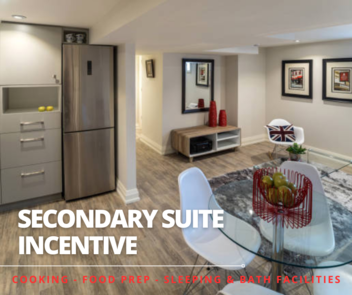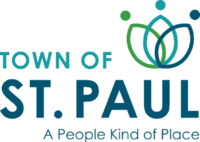
What is a secondary suite?
Secondary suites provide a range of housing choices in the Town of St. Paul.
A secondary suite means a subordinate self-contained dwelling unit located in a structure in which the principal use is a single detached dwelling. A secondary suite has cooking, food preparation, sleeping and bathing facilities which are separate from those of the principal dwelling within the structure. Secondary suites also must have a separate entrance from the dwelling. This use includes conversion of basement space to a dwelling unit, or the addition of new floor space for a secondary suite to an existing dwelling. This use does not include duplexes, row housing, or apartments where the structure was initially designed for two or more dwelling units, and does not include boarding and lodging houses. Garden suites and garage suites are not considered secondary suites.
To see if your property is zoned for a secondary suite, check your property's zoning here.
